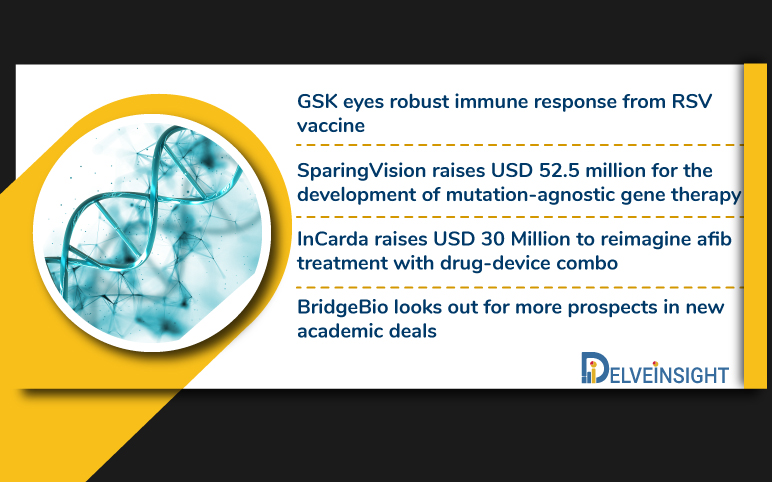Pharmaceutical Consulting: A Strategic Pillar in Modern Healthcare and Biotechnology
Aug 01, 2025
Table of Contents
In today’s hyper-competitive and information-saturated global economy, companies across sectors are constantly challenged to make high-stakes decisions at speed and scale. Whether it’s an established multinational corporation or a nimble start-up, navigating complexity often leads to operational delays, financial missteps, and suboptimal strategic choices. Amid these challenges, consulting services have emerged as critical allies, offering clarity, precision, and direction.
For decades, businesses have turned to consulting firms and Subject Matter Experts (SMEs) to streamline decision-making and implement forward-looking strategies. From finance to automotive, energy to chemicals, consultants have helped organizations optimize operational performance, manage risks, adapt to market shifts, and maintain regulatory compliance. Prestigious firms such as Deloitte, Accenture, PwC, Bain & Company, and McKinsey & Company have long been at the forefront of this transformation, offering tailored solutions across domains like digital transformation, tax advisory, risk management, and organizational strategy.
Downloads
Click Here To Get the Article in PDF
Among the industries benefiting most from specialized consulting services is Pharmaceuticals & Life Sciences. Here, consultants play a pivotal role across the entire product lifecycle—from discovery and R&D to clinical trials, commercialization, and post-marketing surveillance.
The Role of Pharma Consultants in a Dynamic Market Landscape
Pharmaceutical consultants are highly skilled professionals with deep domain expertise in biotechnology, healthcare systems, regulatory affairs, and commercialization strategies. Their services are crucial to companies navigating the complexities of drug development, clinical research, manufacturing scale-up, regulatory compliance, and market access.
These consultants offer independent, objective insights, something that internal teams, often entangled in organizational silos or political constraints, may lack. By identifying inefficiencies and highlighting untapped opportunities, consultants empower companies to innovate, stay competitive, and reduce time-to-market.
Types of Pharmaceutical Consulting Services
1. External Consulting:
Engaged on a contract basis, external consultants bring fresh, unbiased perspectives. They operate independently of internal hierarchies and provide specialized expertise at a fraction of the cost of maintaining full-time in-house teams.
2. Internal Consulting:
Larger organizations often develop internal consulting units—teams of cross-functional experts embedded within the enterprise. While deeply aligned with company culture, internal consultants can sometimes face conflicts of interest or budgetary constraints, and their recommendations may be viewed as less impartial.
Key Domains of Pharma Consulting
1. Strategic Business Development
Pharma consultants assist companies in identifying and evaluating new opportunities—be it expanding product portfolios, entering untapped markets, or investing in emerging therapeutic areas. They play a critical role in maintaining a robust product pipeline and ensuring successful product launches aligned with market needs.
2. Technology & Digital Transformation
As technologies such as AI, machine learning, digital twins, and cloud-based analytics revolutionize healthcare, consultants help pharma companies integrate these tools into R&D, supply chain, pharmacovigilance, and commercial operations. They design tech-based strategies to improve productivity, reduce costs, and enable agile decision-making.
3. Regulatory Affairs & Compliance
Navigating complex regulatory frameworks—especially those of the US FDA, EMA, and other global health authorities—is one of the most demanding aspects of pharmaceutical operations. Pharma consultants guide organizations through:
- Regulatory submissions and dossier preparation
- Quality assurance and control frameworks
- Compliance with GxP (Good Practices) standards
- Risk-based pharmacovigilance planning
They also ensure that companies stay compliant with evolving global legislation, including data protection laws and anti-bribery regulations.
4. Mergers, Acquisitions & Strategic Alliances
M&A activity is commonplace in pharma. Consultants conduct due diligence, assess valuation, map cultural synergies, and assist with post-merger integration. They help firms unlock synergies, expand therapeutic portfolios, and enhance shareholder value.
5. Clinical Trials & Pharmacovigilance
With rising scrutiny around safety and efficacy, consultants contribute to trial design, patient recruitment strategies, adverse event reporting, and compliance with ICH-GCP guidelines. They also optimize trial protocols to improve outcomes while reducing costs and delays.
6. Market Access & Commercial Strategy
Understanding reimbursement landscapes, pricing models, and stakeholder expectations is vital. Consultants analyze health economics, identify target populations, and design value-based pricing and reimbursement strategies. They craft go-to-market plans that align with payer requirements and ensure product uptake.
7. Research & Development (R&D) Optimization
From preclinical studies to late-stage development, consultants assess scientific pipelines, identify high-risk compounds, and recommend risk mitigation strategies. They assist with resource allocation, partner selection, and predictive modeling for clinical success.
Why the Pharmaceutical Sector Needs Consulting Now More Than Ever
The global pharmaceutical landscape is undergoing a significant transformation, driven by:
- Increasing R&D costs and longer product development timelines
- Stringent regulatory expectations
- Rising pressure from generics and biosimilars
- Shift towards personalized medicine and digital health solutions
- Demand for real-world evidence and value-based healthcare
These complexities demand informed, evidence-backed decisions—precisely where pharma consultants add the most value.
Pharma Consultancy as a Growth Catalyst
Pharmaceutical consultancies offer a 360-degree service model—spanning scientific guidance, operational restructuring, and market intelligence. They bring a unique combination of scientific acumen and business insight to help clients:
- Launch high-impact therapies faster
- Reduce development and compliance risks
- Improve operational efficiency and ROI
- Anticipate regulatory and market shifts
- Enter and thrive in new geographies
Pharma consultants also play a strategic role in innovation scouting, helping firms identify external assets, startups, platforms, or compounds with high-growth potential and aligning them with internal capabilities.
Conclusion
Pharmaceutical consulting is no longer a luxury; it’s a strategic imperative. As the industry faces constant disruption and innovation, the role of consultants in shaping outcomes becomes more critical. From conceptualizing products to ensuring regulatory clearance and market acceptance, pharma consultants guide companies through their most defining moments.
In a world where science must meet business to succeed, consultants act as the bridge—translating complex technical insights into scalable, sustainable business solutions. For healthcare, life sciences, and biotech firms, tapping into this expertise is essential for staying competitive, compliant, and profitable in the evolving healthcare ecosystem.
Downloads
Article in PDF
Recent Articles
- Biohaven’s trial ; GSK integrates; FDA Approval; Phase III trial
- Immune Checkpoint Activators (ICA): Dynamic Therapeutic Targets
- New method for classification of CNS tumors
- Acquisition of ArQule; Synthorx; and Zentalis nabs a raise
- Atara Biotherapeutics hires; Minor effects of multiple genes determine migraine risk; Celgene set...




